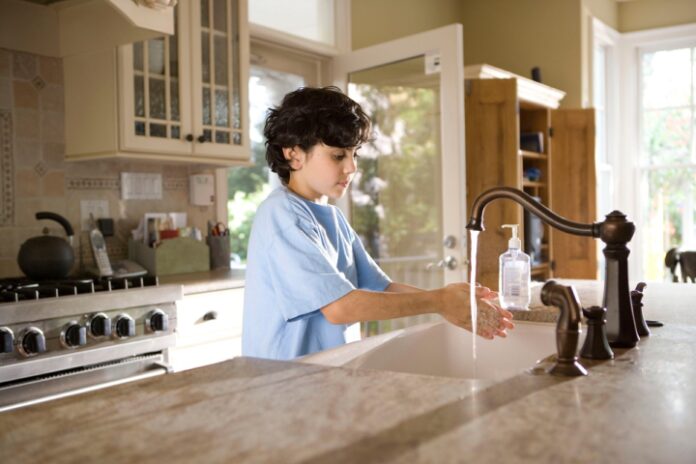Most adults are accustomed to the condition, but it can be disastrous for children.
The trigger for a child’s reaction can vary with time and age, but it is important that all parents and guardians now know the trigger for their child so that they can create an allergy-free home.
Symptoms of allergies are sneezing, itching, wheezing, and coughing. Here are tips for treating your child’s allergies and improving breathing and overall health.
Table of Contents
1. Understand the trigger
In most cases, sudden changes in the weather are the cause of allergies in children, but there are various other factors that can affect the child. Whether at home or at school, triggers range from food to dust.
Decide what your child’s trigger is and write them down. Update them as your child grows and changes so that you can help prevent their allergic reaction.
- • allergic to pollen
- • Pet dandruff
- • Food
- • Mould or fungus
- • Dust mite
- • Chemical smoke and strong odour products
- • Grass and weeds
- • Cockroach and insect droppings
- • Cigarettes, incense, or wood smoke
- • Weather front and changes in humidity level
2. Limit time outdoors with lots of pollen
If your child has an allergic reaction to pollen, you may be allergic to grass, weeds, or other weeds or trees, especially when they are in bloom. During the pollen-rich season outdoors, it’s best to keep your child indoors or limit their time outdoors.
Keep doors and windows closed to keep out allergens. You can also invest in an air purifier and filter and put it in the children’s room.

3. Place your pet outdoors and take care of it
Pet fur can cause all kinds of allergies in your child. Pet fur can easily collect pollen, dust, and mould, so keep your pet out of the house and out of the children’s room. Dandruff can also cause a reaction. Saliva, urine, and animal scales contain certain proteins that can cause reactions such as birdhouses and itching.
If you suspect that your pet’s dandruff is the cause of your child’s allergies, be sure to wash your pet every week. However, do not wash it anymore. Washing cats and dogs more than once a week can cause the fur to dry and, in fact, cause further dandruff.
Take your dog to a groomer or ask a non-allergic person at home to brush daily to keep your dog’s coat clean and prevent it from falling out. If your child is very allergic to animals, it is advisable to look for another home for dogs or keep your pet outdoors so that you can build a home that is not allergic.
4. Eliminate dust mites
As the name implies, dust mite thrives on house dust.
Their excrement is one of the most common allergens in our homes. If your child is symptomatic due to dust mites, clean the house thoroughly daily.
This includes vacuuming and shampooing existing rugs, scrubbing the baseboard, dusting on all surfaces, including hard-to-reach areas, and frequent replacement of air filters.
5. Mould treatment and prevention
Another common pediatric allergen is mould. Outdoors, it is common on the ground, wet leaves and mulch, tarpaulins on patios and boats, vinyl lawn cushions and furniture, and rotten wood. Indoors, mould can be found in carpets, garages, attics, bedrooms, bathrooms, basements, and refrigerators.
6. Build a non-smoking house
Not only is smoking bad for the lungs and nose, but the smoke released can deposit allergens in the lungs and noses of children. Establish a completely non-smoking environment in your home.
This includes more than just cigarettes. Do not burn candles or incense, or use a wood stove or fireplace.
7. Talk to your child’s teacher
So what happens when your child is in daycare or school, and you can’t control what he’s exposed to or alleviate his allergies? One of the most pressing issues for children and parents is managing allergic reactions when the child is not at home.
It is important to talk to your doctor about treatment and medication if your child’s reaction is more severe, especially in an emergency.
If your response is moderate, you should talk to your teacher about the best course of action and how to manage the situation.














